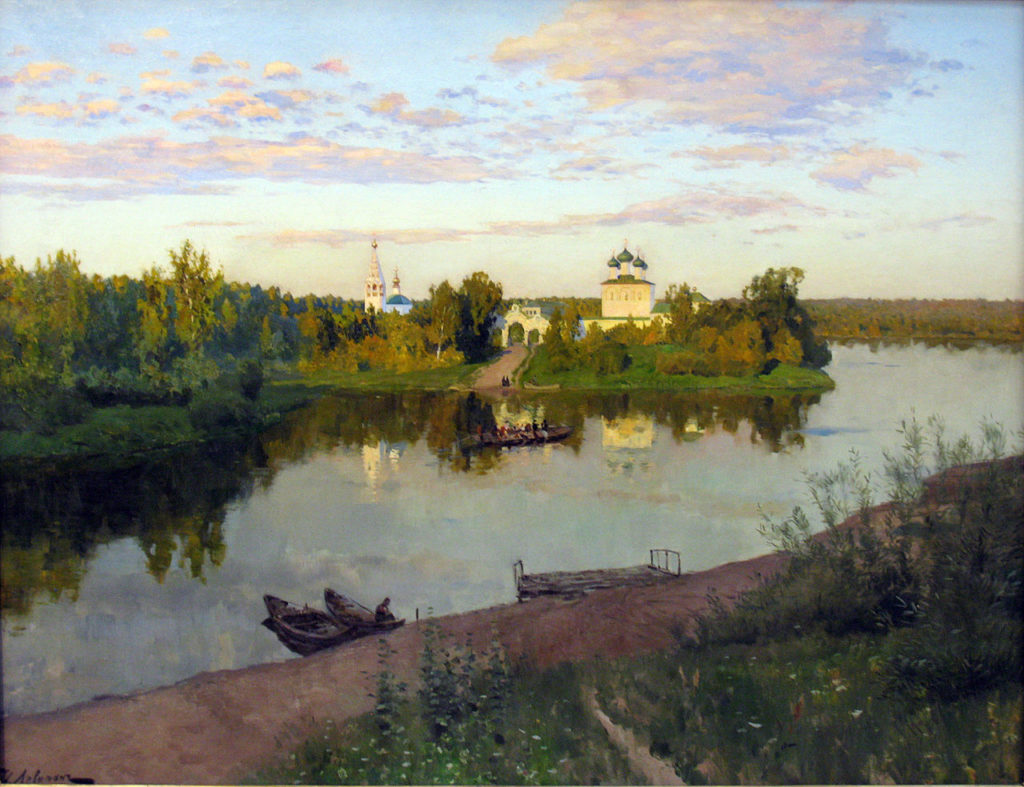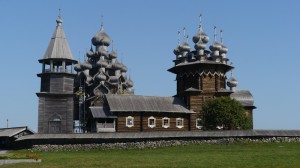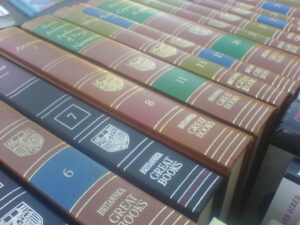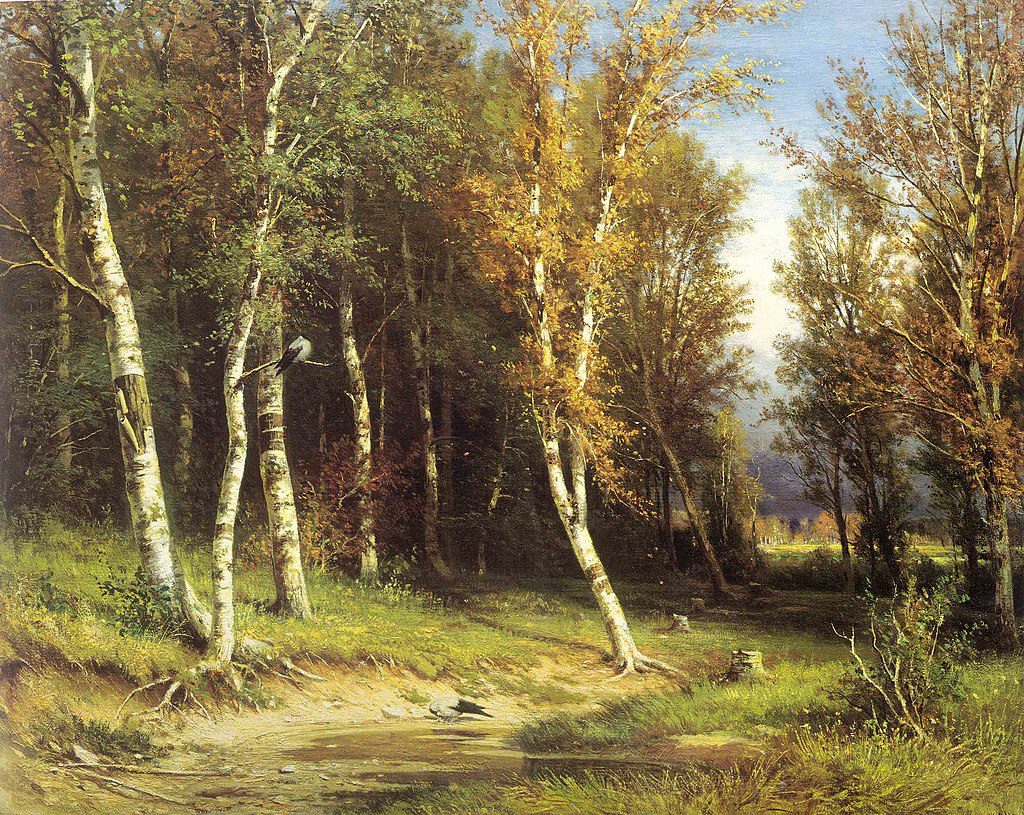
I’m sitting at my brother’s dining-room table looking at piles of stuff, otherwise known as a mess. It has to be sorted out before I can sleep.
Tomorrow I head off to Russia with a Smithsonian group for another chance to sail the Russian Waterways. This is a glorious route up the northern waterways on a classic ship built by the Czechs in 1959. The ship has been fully refurbished, but the new design kept all the rich paneling, wrought iron, and patterned carpets. It even looks like a ship, rather than a shiny flattened-out shoe box, which is how so many modern river ships look.
 The route for this tour includes magical spots such as the island of Kizhi with its famous notched-wood churches, Lake Ladoga, and the town of Uglich where the murder of young Tsarevich Dmitry in 1591 set off the Time of Troubles.
The route for this tour includes magical spots such as the island of Kizhi with its famous notched-wood churches, Lake Ladoga, and the town of Uglich where the murder of young Tsarevich Dmitry in 1591 set off the Time of Troubles.
Some of the folks on this tour have traveled with me before or know me from Dallas. It’s always nice to see fellow-travelers again. Plus I scheduled two days beforehand to spend with friends whom I’ve known since my time studying at Leningrad Conservatory in the early 1980s. In short, it’s going to be a blast.
Yet here I sit, whining, wanting not to finish packing, fretting over having too many skirts, fussing about the 1006 things I should have finished over the past two days. Trust me, you don’t want to be here.
One reason I don’t want to go depart on this trip, though, has surprised me. I don’t want to leave Roanoke. The past weeks have afforded me an unusual amount of time to be back in my home town. If you read this column regularly, you know that Roanoke has been pulling at my heartstrings. It’s been multiple decades since I could wander around and simply be here. Be here, drive around, gaze in wonder at the Shenandoah Mountains that ring the Roanoke valley, and revisit my favorite spots.
One of those spots growing up was the Williamson Road branch of the public library. It was originally located in an old 1930s house with a huge stone porch. That house was just a few blocks from my father’s photo shop (he developed film the old way, and one day I’ll tell you about that). I was allowed to walk up there any time I wished. My earliest memories of reading lie in that old house, with its bookshelves arranged along the walls of what would have been a front parlor and formal dining room.
Then they replaced it with a new building, using the most unimaginative architecture imaginable. (Wait, can you say that?) Yet the new library astounded me. It had rows and rows of shelves (well, probably about 8 rows). And there were reading tables. Grownups sat at those tables, reading books and newspapers. I felt grown-up too, just being there.

Sometime after the library opened, an astounding item appeared on the second shelf to the left: a set of the Great Books. I’d never seen that many books belonging together before—far more volumes than any encyclopedia. And the bindings were pretty too, with different colors, some green, some blue, some brown. Most of the titles and authors were unfamiliar to me, so it became a “wonder who” game: Who or what was a “Descartes”? An “Antigone”?
Somehow, I knew, sitting on the floor beneath these volumes, that time spent with these books would help me be smarter. At least, it would if I read every word before I grew up. Or when I grew up. Or after I grew up. I also gleaned that these books would allow me time to absorb them. They simply stood there in all their glory: there was nothing to doubt.
For the past several days, I’ve wanted to stop into that library. A number of years back I did, and was shocked to see how tiny and dingy the library seemed. Some memories are best left alone. But now, they’ve enlarged the library, added a semi-pretentious glass atrium, lengthened the building, and put in a nice patio with tables out the back.
Yet, despite wanting to see inside, I decided not to, at least not this visit. Why? Because I’m afraid my rows of Great Books won’t be there in their dominant spot. I’m afraid they’ve either been scuttled or moved to a back shelf, so that, who knows, a series of vampire novels can be featured instead.
I mean, shelf space is real estate, and outside of the crowd of people who read things like this digest, how many young people are flocking to the Great Books? Libraries have an obligation to evolve, to serve the needs of their communities, etc. I agree with that.
But I want those books still to be there. More than that, I want the world to be there where kids salivated at the idea of being old enough to take Latin or French. A world where classrooms in public schools were orderly, where people spoke of teachers with respect, where the teacher’s word was law. I want a world to return where a neighborhood’s point of pride was the excellence of its schools (not due to dollar amount, landscaping, or the presence of Starbucks inside). A world where moms were legally still allowed to volunteer in the cafeteria and cook delicious food.
If I keep writing all of my nostalgic “wants,” my messy papers aren’t going to get sorted. I’ll end up with 9 skirts and 4 tops. And I’ll leave 2 of my right shoes under the bed. By the time you read this, I’ll be far from internet, and, literally, in an enchanted forest that springs out of a painting by Levitan or Shishkin. I’ll be full of borscht, creamy potato dishes, baked fish, and strong tea.

Most importantly, I’ll be experiencing Russia in a way that never was possible when I first stepped gingerly into the country on a prized, politically charged State Department exchange in 1981. Never could I have imagined a St. Petersburg where we could Skype and do Facetime. Or a Moscow filled with limousines, Gucci stores, and obnoxious megaphones hawking Kremlin tours. It was a hushed, strained, deadly serious Russia into which I first stepped. A Russia where only the privileged few had permission to sit in the reading rooms of the Lenin Library. They wore suits and ties, heels and cardigans, and often overcoats since the twice-daily airing of the halls, regardless of temperatures, left us all shivering.
But I was able to step into it, the result of years of study and dreaming. And so much of my dream began in that branch library in Roanoke. Seated with books that broadcast a singular message: whoever entered this world would find a special kind of fulfillment. Whoever studied would gain more than just learning, but would be strengthened and prepared for things unimaginable in their futures.
The child today who is learning fractions by doubling batches of chocolate-chip cookies at mother’s elbow, gleefully (or reluctantly) reciting a memorized poem, or regularly trudging home from the branch library with a tottering stack of books, is reaching out to the future. He is gluing himself to the powerful traditions of our Western Culture. This training, these influences, are arrows shooting into the future. We do not yet know their mark, but we know their force and their sharpness. They will strike their target and go a long way to making the child’s dreams possible.
I’m waxing romantic. It’s late. I must finish, pack, sleep. And when I can, I’ll tell you about this trip, about the mesmeric rows of shimmering birch trees, the shafts of northern light piercing those rows, the still grey water that seems to reflect the shadows of Ivan Tsarevich and the Grey Wolf racing past us.



